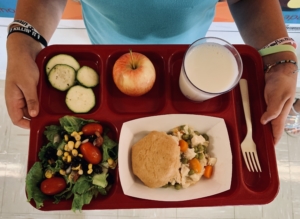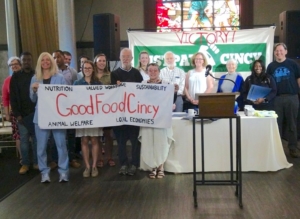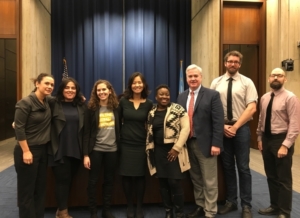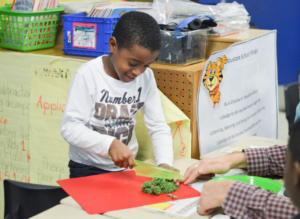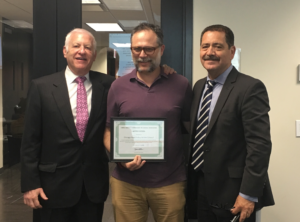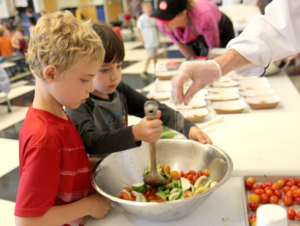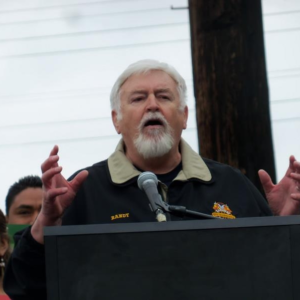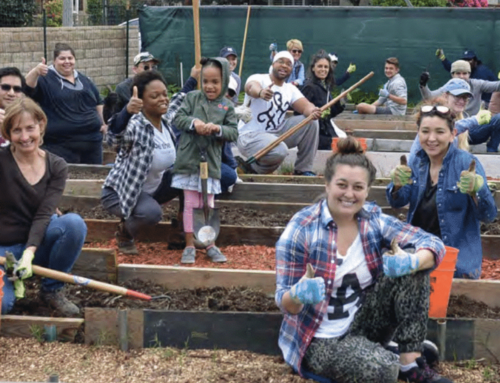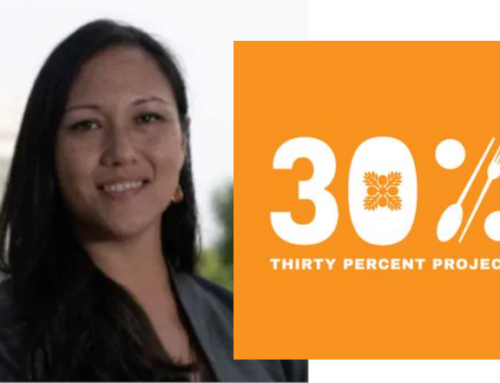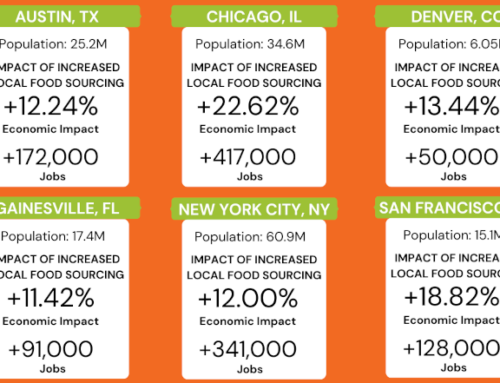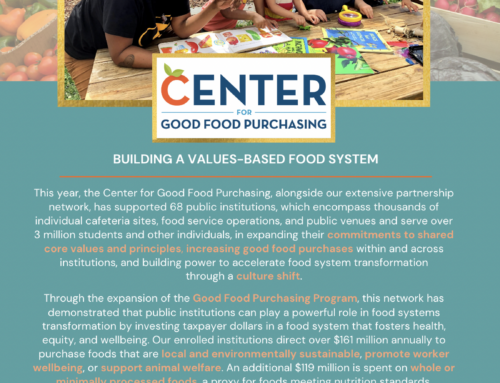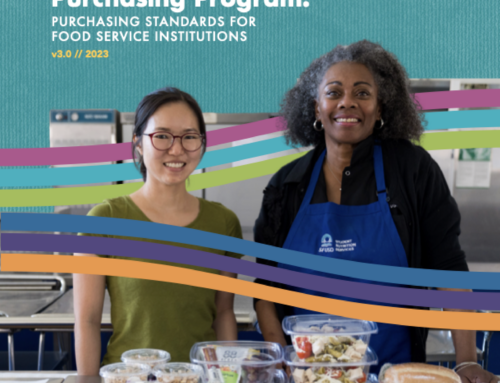Honoring Our 2020 Good Food Heroes: The Essential Workers of the Food System
Food Day has always been a time for reflection and appreciation; it is a time to recognize and celebrate our outstanding community partners who commit themselves to building equitable and sustainable food systems. It was started decades ago as a way to raise awareness about the issues in our food system. Since we began our work, we have celebrated Food Day by honoring those who work toward sustainable, healthy, and equitable food systems. This year, we can think of no better group to honor than the frontline, essential workers who have continued growing, harvesting, processing, transporting, preparing, and serving food throughout the pandemic.
We are proud to name as our 2020 Good Food Heroes:
- Farm and food chain workers
- Local farmers and food businesses
- School districts and school food service teams
- Emergency food providers
- Local government leaders
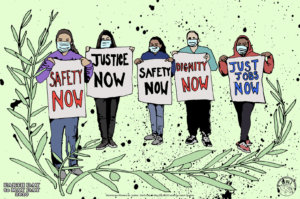 Farm and food chain workers, a majority of whom are people of color, are the backbone of our nation’s food system. During the pandemic, they have faced severe health risks and financial difficulty due to closures and layoffs. Many food workers had no other option but to show up for work each day, so they could keep their families fed, despite crowded and unsafe working conditions that contributed to the deaths of thousands of farm and food system workers during the pandemic. We honor and acknowledge their sacrifice.
Farm and food chain workers, a majority of whom are people of color, are the backbone of our nation’s food system. During the pandemic, they have faced severe health risks and financial difficulty due to closures and layoffs. Many food workers had no other option but to show up for work each day, so they could keep their families fed, despite crowded and unsafe working conditions that contributed to the deaths of thousands of farm and food system workers during the pandemic. We honor and acknowledge their sacrifice.
Across the country, frontline food workers responded to these conditions with walk-outs, strikes, and other collective actions — demanding basic protections like personal protective equipment and paid sick leave — thus standing up for the rights of the millions of workers risking their lives in food chain jobs. Organizing with these frontline food workers, our partners, like the Food Chain Workers Alliance and their allies, have fought to ensure stronger worker protections and compensation in all federal stimulus legislation.
Local farmers and food businesses, especially small farms, restaurants, and other food service enterprises, have had to navigate significant and sudden disruptions, shifting their business models at a moment’s notice. Producers increased their direct to consumer sales. Restaurants became providers of emergency meals. Close partnerships with food policy councils, grassroots coalitions, and community-based organizations became instrumental in developing creative solutions to maintain livelihoods and get food to those who needed it most. They also played a key role in economic justice. As Boston City Councilmember (and one of our 2019 Good Food Heroes) Michele Wu said recently: “We must center restaurants, bodegas, and other food businesses as critical food infrastructure for racial and economic justice… Often when we talk about food and food policy, it is thinking about hunger and food access through food pantries and food banks, all of which are extremely important. We want to recognize how important our locally owned food businesses are too, especially in getting culturally appropriate food to communities and connecting the economic justice piece to it.”
When schools were closed and access to food was nearly impossible for entire communities, school districts and their school food service teams immediately reworked their food service operations to provide emergency food services at an unprecedented pace, despite additional costs of preparing and serving food safely and significant financial risk to their budgets. Schools have long been, and continue to be, anchors of community nutrition. Alongside schools, emergency food providers have scaled up exponentially, serving record breaking numbers of community members whose sudden layoffs and pay cuts resulted in overnight impacts to their ability to feed themselves and their families.
Equally pivotal in ensuring the nutrition security of all communities, local government leaders in our network worked round the clock to answer the call for local and regional emergency response strategies in providing communities with food. They strapped on their face masks and helped distribute food to communities of need. They did their emergency work while working from home, juggling child care and partner work schedules, and managing health risks for themselves and their families. And they persistently rose to the occasion in devotion to the communities they were put in office to serve. Many of the most successful activated their relationships with community based groups and coalitions.
To all essential workers: THANK YOU.
The frontline work of all of these essential workers was supported by community-based organizations who connected local farms and food businesses with emergency food providers, organized mutual aid networks, and provided infrastructure to facilitate well-coordinated cross-sector information sharing and resources. The philanthropic community rose to the urgency of the moment by establishing funds for emergency food distribution, safe and adequate emergency housing for farm and food workers, emergency relief for displaced restaurant and hospitality workers, capital support for small and mid-sized producers, producers of color, and much more. As the Reverend Martin Luther King observed: “We are caught in an inescapable network of mutuality, tied in a single garment of destiny. Whatever affects one directly, affects all indirectly.”Although the disruptions to life and our food system are not yet over, we are inspired and grateful for the work being done by these essential workers, and the relationships that support them.
We will be sharing more examples of the efforts and advocacy of essential food workers and our many partners in a report at the end of the year. Until then, we invite you to join us in celebration and gratitude for this year’s Good Food Heroes, the Essential Workers of the food system.
For more #GoodFoodRising stories of how food workers and local and national partners are responding to the needs of their communities, follow @GoodFoodCities on Instagram, Twitter, and Facebook.

